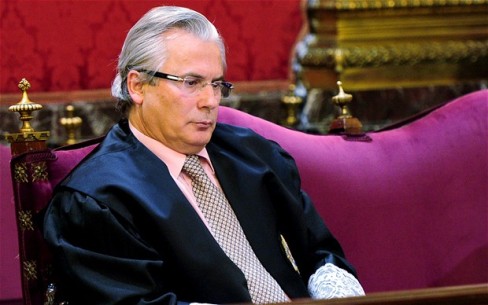The case of Baltasar Garzón has started a debate not only regarding judicial activism and the role of judges, but also around the recognition of amnesty for alleged war criminals.
Baltasar Garzón, a magistrate in Spain’s national court, was previously responsible for the arrest and attempted extradition of Chilean ex dictator and war criminal, Augusto Pinochet, from London in 1998. The British courts agreed due to the nature of the case, which related to the alleged torture of Spanish citizens under Pinochet, that the public international law principle of universal jurisdiction could be applied. However, the then home secretary, Jack Straw, turned down the extradition application on health grounds, due to the former dictator’s age and illness. Despite this, the arrest of General Pinochet encouraged the Chilean judicial system to prosecute past abuses.
Garzón was recently suspended after opening a formal court investigation into human rights abuses committed by Spain’s former dictatorship. He was seeking to investigate the deaths of 114,000 opponents of the Franco regime between 1936 and 1975. Garzón is now facing charges for abuse of power in his trial that opened in the Supreme Court in Madrid yesterday.

Baltasar Garzón
His judicial activism has been widely criticised and condemned by other judges, who claim he is harming the legitimacy of the judicial system. He has also been accused, by both high profile opponents and the media, of vanity and being motivated by his own interests. Nevertheless, Garzón maintains that opening the investigation was based on the same principles used to order the arrest of Chile’s Augusto Pinochet.
In 1977, during the transition to a democratic system in Spain, an amnesty was put in place to cover all crimes of a “political nature” committed during the regime. Mr Garzón argued that the amnesty law does not apply to crimes against humanity and that he was applying the same principles to the Franco regime as to that of Pinochet. However, a Supreme Court judge stated that his actions amounted to a breach of his duties as a judge and that his arguments had no basis under international law.
Under international law, the criminal prosecution of individuals responsible for human rights abuses is an essential part of a victim’s right to justice. The granting of an amnesty is not uncommon in certain situations following conflict; where violations of international humanitarian law have occurred on a massive scale, often involving a large section of the population. However, there is also a need to balance the victim’s rights to justice with the need of the State to promote reconciliation in dealing with past atrocities without provoking further conflict. Where States like Spain have enacted amnesties in periods of transition, it’s necessary to consider whether such amnesties should be recognised internationally.
So the question arises, should international principles apply to a (domestic or international) court’s decision on whether to recognise amnesties covering war crimes? When there is a threat to peace, there may be need for an amnesty, and other accountability measures, to deal with those responsible. This would of course not be the case in Spain, which almost half a century after the death of Francisco Franco, is a stable and democratic country.
It appears that the basis for trying Baltasar Garzón is not in fact relating to a breach of the 1977 amnesty law, but rather a fear of his judicial activism. Spanish courts have been criticised for trying to bury the past, failing to investigate or seek accountability for atrocities committed during the Franco regime, and during the Spanish Civil War. Why is there such a reluctance to address the crimes of the past? In 2009, the European Court of Human Rights held that an amnesty law is generally incompatible with the duty of a state to investigate acts of torture or barbarity.
Why has Garzón’s role in seeking to investigate human rights abuses landed him on trial? It appears that the judiciary does not want to recognise its role in examining the validity and relevance of this law. Its decision to criminalise questions regarding the regime seems both disproportionate and confused. Rather than trying Garzón for his actions as an individual, the judicary could be working together as a body to take an investigative role, and come to terms with its violent history dating back to the Spanish civil war.
Here is a short clip about Baltasar Garzón on the Guardian website.


